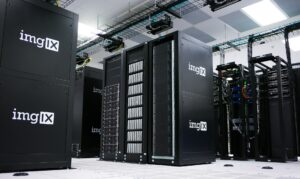Cloud computing is seen as being one of the most impactful and important technologies of the modern digital age, yet by most standards it can still be considered a fledgling entry in the IT market in spite of the current scope of its impact.
Observers believe that the cloud will eventually become so ubiquitous that it will not be talked about as a distinct set of services within a wider marketplace but will instead encompass every other infrastructure and solution to the point that its dominance makes it almost transparent.
While a cloud-powered future is all but assured at this point, industry insiders are already looking ahead to what will define the next generation of technological evolution. Many people are looking to artificial intelligence (AI) to push the boundaries of what is currently thought to be possible in this arena, according to the Financial Times.
Intelligence in the Cloud
Gartner analyst Tom Austin argues that just as the cloud has been a major market disruptor so far in this decade, the next major shakeup is likely to result from the rollout of machine learning and, ultimately, true AI solutions.
Austin points out that the real changes that are driving innovation and determining strategies at the moment have been brought about by a combination of the cloud and the need for businesses to take a mobile-first approach to developing apps and services. The popularity of smartphones means that these are the devices that must be served first when the cloud is involved.
From cloud storage in the UK to remotely hosted solutions that can be harnessed from anywhere on the planet, cloud-based smartphone services are being widely used right now. In many cases, they are so seamless that the people using them are unaware that the cloud is even involved in this process.
The scalability and flexibility of the cloud means that millions of users can be accommodated and served effectively, regardless of their geographic locations. These same principles are being applied to the use of AI, or the emergent technologies that are leading up to its eventual inception.
So-called cognitive services are already offered by major players including Microsoft and Amazon, with algorithms developed to allow software to learn and evolve under its own steam without the need for reprogramming by human engineers. This technology has been put to work to achieve everything from image recognition to linguistic analysis.
Just as cloud storage in the UK is inexpensive because its providers can operate vast data centres and portion out resources across a large user base, the same cost-effective benefits can be applied to the development of the cognitive services in this ecosystem.
The Long Game
Digital systems have long been capable of storing and replicating data, but the biggest aspect of the AI movement is that organisations are looking to build systems that can actually understand and interpret the information that is provided to them, rather than dealing with it entirely passively.
From transcribing audio files into written text that can be translated accurately into many different languages, to empowering facial recognition systems with the ability to identify billions of individuals and tailor business services to the specific needs of a customer, the practical applications of machine learning algorithms are expansive.
In fact, some experts believe that the current mobile-first orientation of the cloud market will eventually shift to the point that it becomes an AI-first environment instead. This may well lead to devices themselves becoming voice-driven, eliminating the need for physical interfaces as the machines get better at interpreting what users need simply based on what they say out loud.
This is comparable to the kinds of interface changes and shifts in expectations that were brought about when the modern smartphone movement really got underway almost a decade ago.
There are still concerns surrounding the eventual possibility of a genuinely self-aware AI being created and the impact that this will have on the economy and society as a whole. Whatever happens, the cloud will remain at the heart of what powers new technologies going forward.


